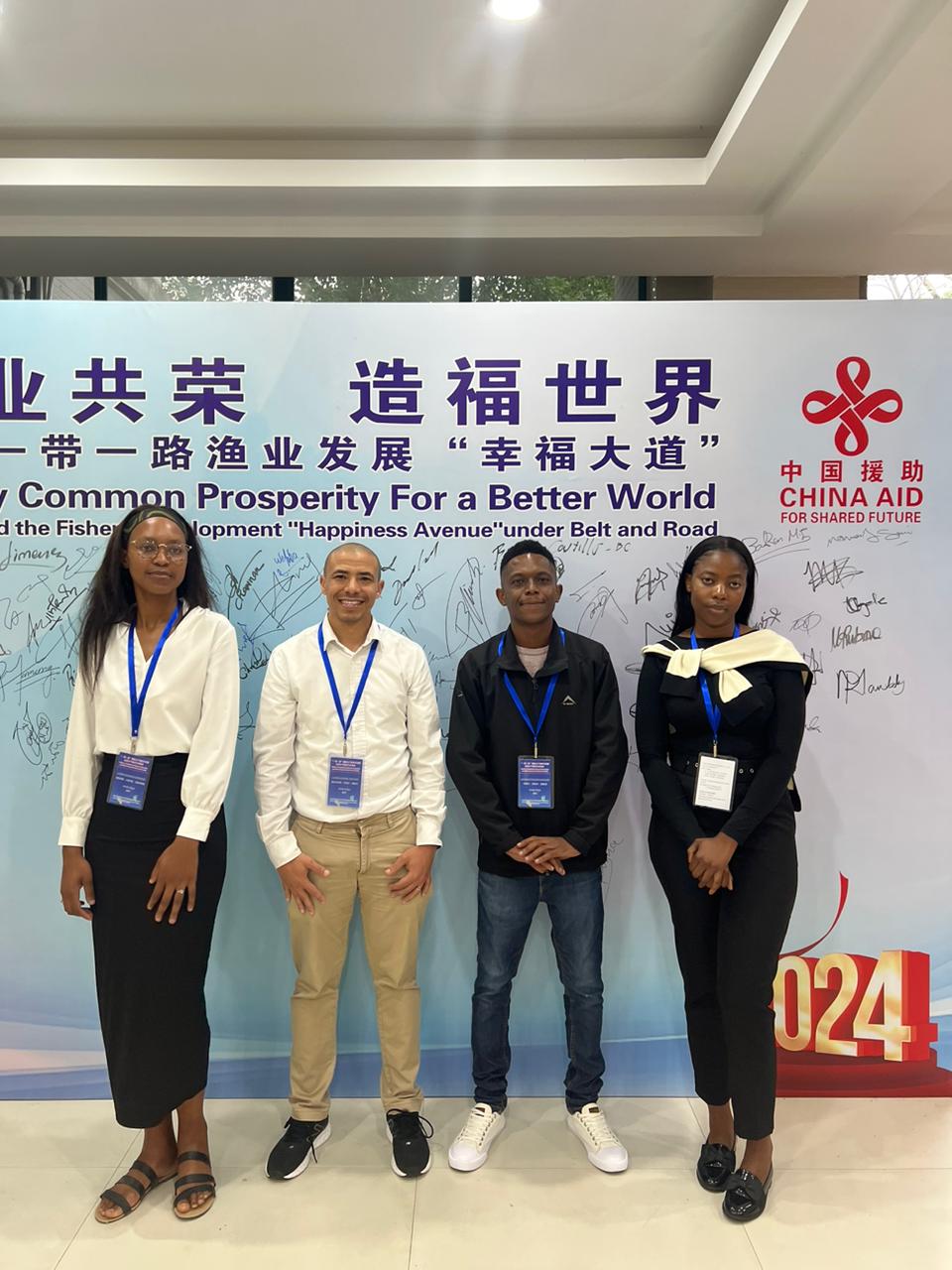WSU MSC STUDENTS EXPLORE SUSTAINABLE AQUACULTURE AT CHINA SEMINAR
 Two WSU Master of Science students recently returned from a transformative three-week seminar in China, an experience made possible through a partnership between the Department of Forestry, Fisheries, and the Environment (DFFE) and the Chinese Government.
Two WSU Master of Science students recently returned from a transformative three-week seminar in China, an experience made possible through a partnership between the Department of Forestry, Fisheries, and the Environment (DFFE) and the Chinese Government.
The seminar, "Sustainable Development of Aquaculture and Climate Change for Road and Belt Countries," provided attendees worldwide with valuable insights into sustainable aquaculture practices and strategies for addressing climate change’s impact on aquatic ecosystems.
Master of Science in Zoology student, Nasiphi Mduzulwana, said: “The discussions centered on sustainable practices in aquaculture and innovative solutions to ensure the long-term health of our oceans and rivers. I was particularly impressed by China's commitment to cultivating a diverse range of aquatic species, including seaweeds, sea cucumbers, fish, and shellfish, to support both its economy and population.”
Mduzulwana added that beyond the academic aspects, she was fortunate to explore China's rich cultural heritage.
“Visits to the local museums provided insights into the country's history and resilience. I got to see how far they have come and how they did not let bad experiences and difficult times define them. This experience was invaluable, especially for a Black girl in science. It broadened my horizons and reinforced my passion for sustainable solutions,” said Mduzulwana.
This unique learning opportunity highlighted the value of WSU’s commitment to global partnerships and sustainable development, as these students return equipped to apply new insights to their research and contribute meaningfully to South Africa's marine science and aquaculture sectors.
Zoology Masters student specialising with Marine Sciences Aphiwe Lugongolo said: “The invited keynote speakers emphasised the importance of research and innovation in breeding disease-resistant species, improving feed efficiency, and minimising environmental impacts like water pollution and habitat destruction. The seminar provided a valuable insight into the future of aquaculture within belt and road countries a solution to food security, zero hunger and life underwater.”
Lugongolo added that the seminar left her inspired by the possibilities and hopeful for this sector's positive impact on global development.
With this global exposure, WSU continues to empower its students to contribute meaningfully to sustainability and innovation within their communities and beyond.
By Anita Roji
